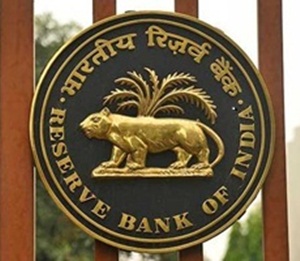The Supreme Court has struck down the Reserve Bank of India's (RBI) 12 February circular on the resolution of stressed assets and declared it unconstitutional and ultra vires, giving a big relief to debt-laden companies in the power, sugar and infrastructure sectors.

The RBI circular, issued on 12 February 2019, had imposed a one-day default rule, which requires banks to treat a company as a defaulter even if it misses repayment schedule by a day.
The circular had also directed lenders to refer any loan account over Rs2,000 crore under the Insolvency and Bankruptcy Code (IBC) if it is not resolved within 180 days of default. This translates into a 180-day resolution period for all overdue loans.
A two-judge bench of justice Rohinton Fali Nariman and justice Vineet Saran today pronounced the judgement.
With the RBI circular becoming ultra vires, power sector entities expect the Reserve Bank to revive its earlier schemes such as CDR, SDR, S4A et, reports citing advocate for the power companies Mahesh Agarwal said.
Essar Power, GMR Energy, KSK Energy, and Rattan India Power, as well as the Association of Power Producers (APP) and Independent Power Producers Association of India (IPPAI) have challenged the RBI circular that limited recovery period for infrastructure loans.
The power firms alleged that the central bank's notification failed to address factors that lead to non-payment of loans, especially in the case of power companies, and that it was based on a 'one-size-fits-all' approach.
Lenders have been demanding a longer period for resolution of non-performing assets (NPA) for high value loans, especially in the power sector as also relaxation of the one-day default norm.
The RBI circular relating to resolution of non-performing assets (NPA), issued on 12 February 2018, brought down the timelines for resolutions and prescribed faster action in case of a default. Under the revised framework as soon as there is a default (one day default), all lenders, either singly or jointly, should initiate steps to cure the default without providing for any common platform.
Bankers say that a 30-day delay in paying up debt is considered normal, and that the default action should begin only if there is a non-payment beyond 30 days instead of a one-day default.
Also, they feel there needs to be longer window for resolution of high value accounts, especially relating to power sector loans where the plants are idling for want of coal and implementation of tariffs.
The circular says a resolution professional should be appointed within 180 days for accounts of Rs 2,000 crore and above.
The bankers said this should be extended. Some bankers also mooted the idea of setting up an Asset Reconstruction Company (ARC) to resolve the power assets.
Some companies even challenged the scope and validity of the Insolvency and Bankruptcy Code, while others raised concerns on the constitutional validity of the 12 February circular.
The RBI, however, defended its circular that no company has abided by the circular and that none of the 157 companies that would be affected by the circular has resolved NPAs within the given period or complied with the 31 August 2018 deadline.
The RBI notification did not distinguish between firms with poor management and those firms which turned NPAs due to external and factors outside their control.
In February 2019, RBI Governor Shaktikanta Das confirmed that there is no proposal to modify the circular.
The central bank had argued that ample time had been allowed to lenders and for firms to find a resolution and the notification 'is generic and sector agnostic'.
Shares of power companies such as Adani Power, Tata Power, JSW Energy and Torrent Power advanced on Tuesday after the Supreme Court squashed RBI’s February 12 circular, calling it ‘unconstitutional’.
The Supreme Court, in its previous hearing in September last year, had stayed the circular.





















